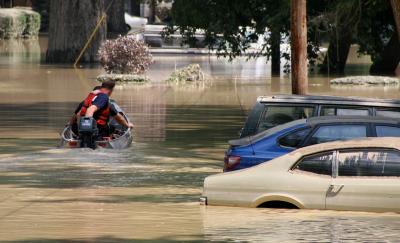Resilience. It’s a pressing topic, but the term is frequently confused with related—yet distinct—concepts of risk reduction or adaptation. Abt hosted a webinar to discuss what resilience really means, how it is relevant to diverse stakeholders, and how to strengthen resilience at local, regional, and national scales. Speakers described how communities and nations experience and recover from impacts to their environment and climate, energy systems, health, and cultures, and how to develop effective resilience-building strategies.
Speakers:
Lorine Giangola, Ph.D., Abt Associate Scientist, Environment & Natural Resources (moderator)
Ambassador John Lange, Senior Fellow for Global Health Diplomacy, United Nations Foundation
Sherry Stout, Engineer, U.S. Department of Energy’s National Renewable Energy Lab (NREL)
Raymond Martinez, Director of the Pueblo de San Ildefonso’s Department of Environmental and Cultural Preservation, and Tribal Risk Assessment Program Manager
Watch the video:







